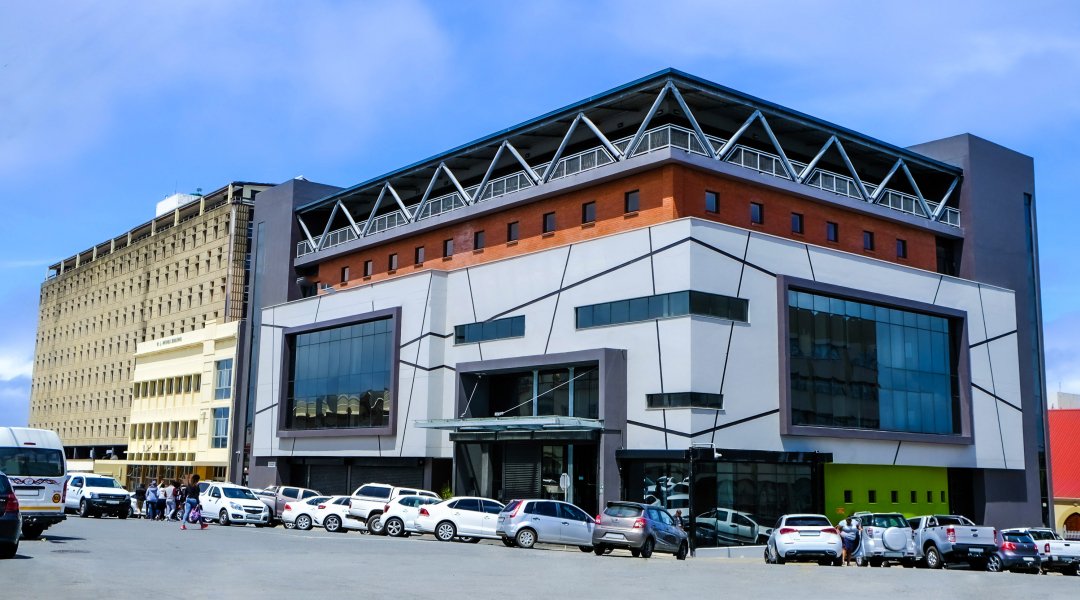The University of Fort Hare, located in the serene town of Alice in the Eastern Cape province of South Africa, is an institution of profound historical significance and academic distinction. Established in 1916, Fort Hare emerged as a pioneering force in South African higher education, committed to providing quality education during a time when access to higher learning was limited for many black South Africans.
With a legacy that spans over a century, Fort Hare has played an integral role in shaping the educational and political landscape of South Africa. The university’s significance in history is emphasized by its function as a breeding ground for political and intellectual figures who would later play critical roles in the fight against apartheid and the establishment of a new, democratic South Africa. Notable alumni, including Nelson Mandela, Oliver Tambo, and Desmond Tutu, have contributed significantly to the university’s reputation as a center for progressive thought and social change.
In addition to its historical contributions, the University of Fort Hare continues to be a leading institution in promoting educational access, research, and community engagement. It upholds a mission to provide high-quality education and foster leadership that addresses the pressing challenges facing South Africa and the broader African continent.
Despite facing challenges in global university rankings, Fort Hare remains a cornerstone of academic excellence and social impact. Its commitment to education is reflected in its diverse educational programs, spanning various disciplines including the humanities, sciences, law, and social sciences. The university’s focus on research and community service is integral to its mission of advancing knowledge and addressing societal issues.
This article delves into the current status of the University of Fort Hare, providing a comprehensive overview of its global and regional rankings, an analysis of tuition fees, and a detailed look at its extensive range of academic programs. By examining these aspects, we gain a deeper understanding of how Fort Hare continues to contribute to higher education and social progress, preserving its legacy while adapting to the evolving educational landscape.
Read Also: 15 Free Online Courses With Certificates in Australia
University of Fort Hare: Rankings

In the QS World University Rankings 2024, the University of Fort Hare does not appear among the top 1000 universities globally. This reflects the university’s relatively modest international profile in comparison to other South African institutions that have achieved higher rankings. Factors contributing to this include its historical focus and regional emphasis, which may not always align with the global criteria used by QS for ranking universities. However, the university’s focus on community engagement and local impact remains central to its mission, even as it navigates the challenges of gaining broader international recognition.
Times Higher Education (THE) World University Rankings
Similarly, The University of Fort Hare is not listed in the 2024 edition of Times Higher Education’s (THE) World University Rankings. This absence underscores its lower visibility on the global stage, where competition is intense among universities striving for higher positions. THE rankings assess a range of factors including research output, teaching quality, and international outlook. Fort Hare’s historical strengths and regional focus, while significant, may not fully capture the diverse criteria used in these global evaluations. Despite this, Fort Hare continues to play a vital role in advancing education and research within South Africa.
QS Africa University Rankings
Within the QS Africa University Rankings 2024, Fort Hare is positioned in the lower tier and does not rank among the top 10 African universities. This placement reflects the competitive nature of higher education in Africa, where many institutions vie for top positions. Nonetheless, Fort Hare’s historical significance and its ongoing contributions to higher education and research within the continent are noteworthy. The university remains a key player in regional academic and intellectual development, upholding its legacy of providing quality education and fostering leadership.
Subject Rankings
Regarding subject-specific rankings, the University of Fort Hare exhibits notable performance, particularly in areas aligned with its historical strengths. The university is recognized for its excellence in Social Sciences, Education, and Humanities, reflecting its commitment to these disciplines and its impact in these fields. While it may not be a dominant force in global rankings, its regional subject-specific rankings highlight the university’s continued relevance and influence. Fort Hare’s specialized programs in these areas are well-regarded, contributing to its role as a significant educational institution in South Africa.
Overall, while the University of Fort Hare’s international rankings may not reflect its historical importance and regional impact, it remains a crucial institution in South African higher education. Its focus on community engagement, educational excellence, and contribution to regional scholarship underscores its enduring significance.
Read Also: 7 Ways to Quickly Improve Your English Language Skills
University of Fort Hare: Fees
The University of Fort Hare offers a diverse range of undergraduate and postgraduate programs, with tuition fees varying based on the program and the student’s residency status. For the 2024 academic year, the fee structure is designed to accommodate both South African and international students, reflecting the university’s commitment to providing accessible education while maintaining financial sustainability.
Undergraduate Programs
- South African Students: Tuition fees for South African undergraduate students at Fort Hare generally range from ZAR 30,000 to ZAR 50,000 per year. The variation in fees depends on the specific faculty and program of study. Programs in fields such as Engineering and Health Sciences tend to be at the higher end of this range, while those in the Arts and Humanities may be more affordable. This range reflects the university’s efforts to offer a cost-effective education while addressing the needs of a diverse student body.
- International Students: International undergraduate students face higher tuition fees, typically ranging from ZAR 40,000 to ZAR 70,000 per year. The variation in fees depends on the chosen course of study and the specific program requirements. Programs with specialized resources or higher operational costs, such as those in Science and Technology, may incur additional fees. Fort Hare’s fee structure for international students aims to balance accessibility with the financial realities of maintaining high-quality education.
Postgraduate Programs
- South African Students: For South African postgraduate students, fees vary significantly depending on the program and level of study. Generally, fees range from ZAR 40,000 to ZAR 80,000 per year for most coursework programs. Research-based degrees, such as Master’s and PhDs, may be more affordable, with fees potentially lower due to the nature of the research funding and institutional support available. The university strives to provide competitive pricing for advanced studies while supporting research initiatives.
- International Students: International postgraduate students can expect to pay between ZAR 50,000 and ZAR 100,000 per year for coursework programs. Research-based programs may have different fee structures, often offering opportunities for scholarships or funding to offset costs. The higher fees for international students reflect the additional resources required to support their academic and administrative needs.
Additional Costs
Students should budget for additional costs in addition to tuition, such as living expenses, textbooks, application fees, and housing. Living expenses in Alice and the surrounding areas can vary widely, with an estimated budget of ZAR 60,000 to ZAR 100,000 per year. This estimate covers accommodation, food, transport, and other personal expenses, ensuring students have a comprehensive understanding of the total cost of attending the University of Fort Hare. The university provides various support services to help students manage these costs effectively.
Read Also: World University Rankings 2024: A Comprehensive Analysis
University of Fort Hare: Courses and Programs

The University of Fort Hare provides a comprehensive selection of undergraduate and postgraduate programs through its diverse faculties. Here is a detailed overview of the programs offered:
Faculty of Education
Undergraduate Programs:
- Bachelor of Education (BEd): Specializations include Early Childhood Development, Primary Education, and Secondary Education. This program prepares students for careers in various educational settings, focusing on pedagogical skills and classroom management.
Postgraduate Programs:
- Master of Education (MEd): This program offers advanced study in educational theory and practice, with options to specialize in areas such as curriculum development, educational leadership, and inclusive education.
- PhD in Education: Designed for those pursuing a career in academic research or high-level educational leadership, this program provides an opportunity for in-depth study and original education research.
Faculty of Law
Undergraduate Programs:
- Bachelor of Laws (LLB): A comprehensive legal education covering core areas of law, including constitutional, criminal, and commercial law, preparing students for a career as legal professionals.
Postgraduate Programs:
- Master of Laws (LLM): Available in various specializations, including human rights, environmental law, and corporate law, this program allows for advanced legal study and research.
- PhD in Law: For students aiming to contribute to legal scholarship and research, this program involves conducting original research in various fields of law.
Faculty of Social Sciences and Humanities
Undergraduate Programs:
- Bachelor of Arts (BA): Offers majors in Psychology, Sociology, Political Science, History, and Languages. This diverse program provides foundational knowledge in social sciences and humanities, preparing students for various career paths or further study.
Postgraduate Programs:
- Master of Arts (MA): Available in multiple disciplines such as Psychology, Sociology, and Political Science, focusing on advanced study and research.
- Master of Social Science (MSocSc): Provides specialization in areas like development studies and social policy.
- PhD in Humanities and Social Sciences: Involves extensive research in chosen areas of the humanities and social sciences, aiming for contributions to academic knowledge.
Faculty of Science and Agriculture
Undergraduate Programs:
- Bachelor of Science (BSc): Majors include Biological Sciences, Chemistry, Physics, and Environmental Science, offering a strong foundation in scientific principles and research methodologies.
- Bachelor of Agriculture (BSc Agric): Focuses on agricultural sciences, including crop production, animal husbandry, and agricultural management.
Postgraduate Programs:
- Master of Science (MSc): Available in various scientific disciplines, providing advanced training and research opportunities in fields such as environmental science and biotechnology.
- PhD in Science and Agriculture: Allows for in-depth research in scientific and agricultural fields, contributing to advancements in these areas.
Faculty of Commerce
Undergraduate Programs:
- Bachelor of Commerce (BCom): Includes specializations in Accounting, Finance, Marketing, and Business Management. This program equips students with the skills needed for various roles in the business world.
Postgraduate Programs:
- Master of Commerce (MCom): Offers advanced study in business-related fields, including options for specialization in finance, marketing, and management.
- PhD in Commerce: Focuses on research in business and commerce, aiming for contributions to knowledge in areas such as management theory and business practice.
Faculty of Health Sciences
Undergraduate Programs:
- Bachelor of Nursing Science (BNSC): Prepares students for careers in nursing with comprehensive training in clinical skills, patient care, and health management.
Postgraduate Programs:
- Master of Health Sciences (MHS): Provides advanced education in various health disciplines, focusing on research and specialized practice in health care.
Read Also: The University of Warwick: All You Need to Know
The University of Fort Hare stands out for its deep historical roots and significant contributions to South African education, having been a pioneering institution since its establishment in 1916. Although it may not feature prominently in global rankings, Fort Hare holds a critical position within the South African higher education landscape, celebrated for its role in shaping the nation’s leaders and its enduring impact on regional development.
The university offers a wide range of undergraduate and postgraduate programs across various faculties, reflecting its commitment to providing quality education in fields such as education, law, social sciences, and health sciences. With competitive tuition fees and a focus on fostering academic and professional growth, Fort Hare remains a compelling choice for students who value both historical legacy and academic excellence.
For students seeking to be part of an institution with a profound historical significance and a commitment to regional development, the University of Fort Hare presents an enriching educational experience. Its programs are designed to equip students with the knowledge and skills needed for impactful careers, while its historical context provides a unique and meaningful backdrop to their studies.
